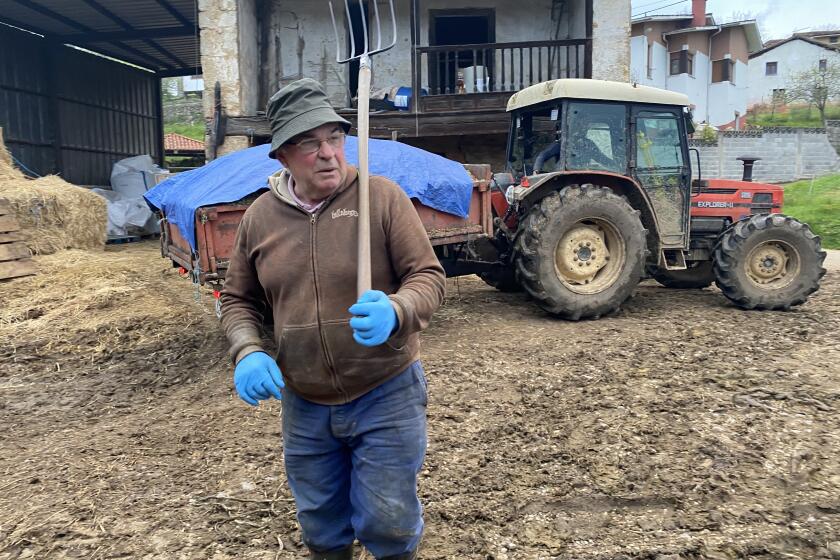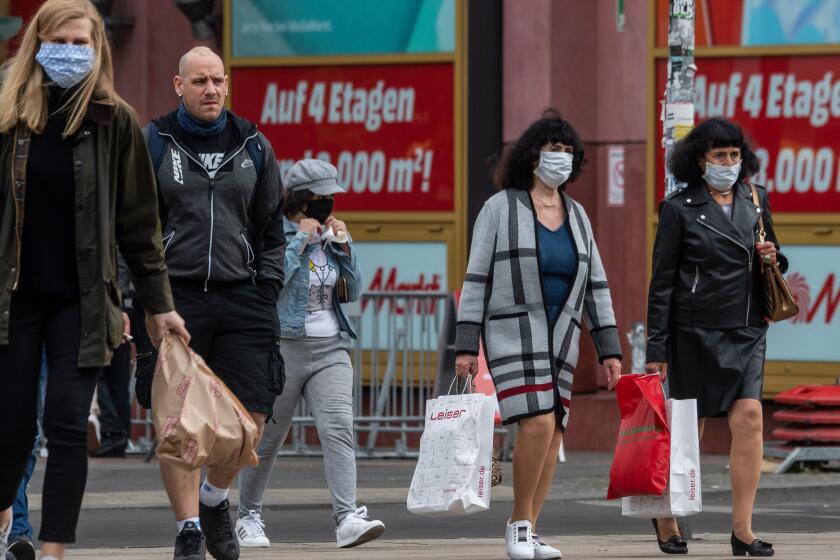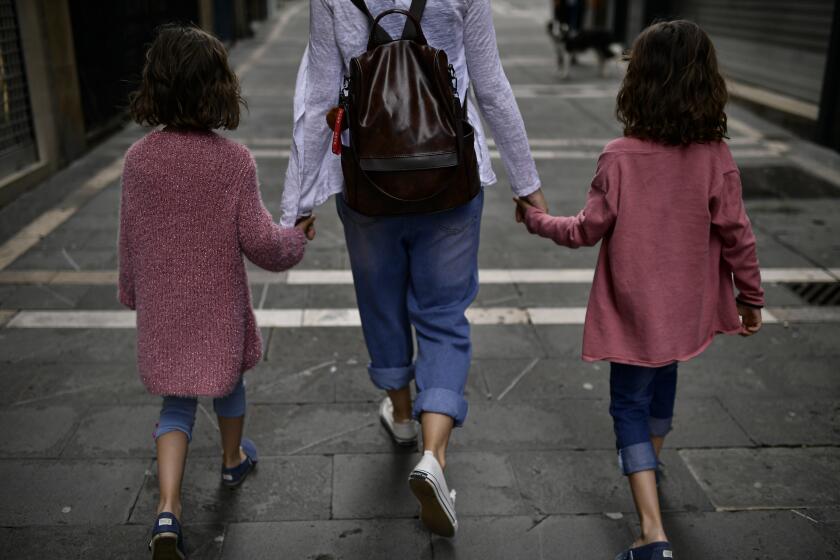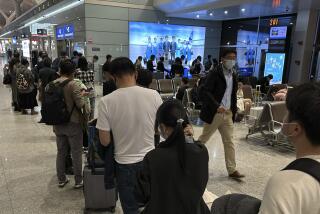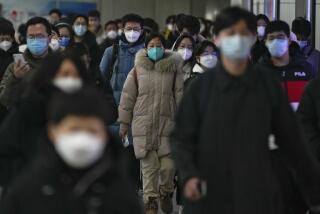Bruised and exhausted Italy eases coronavirus lockdown as some neighbors gingerly do the same
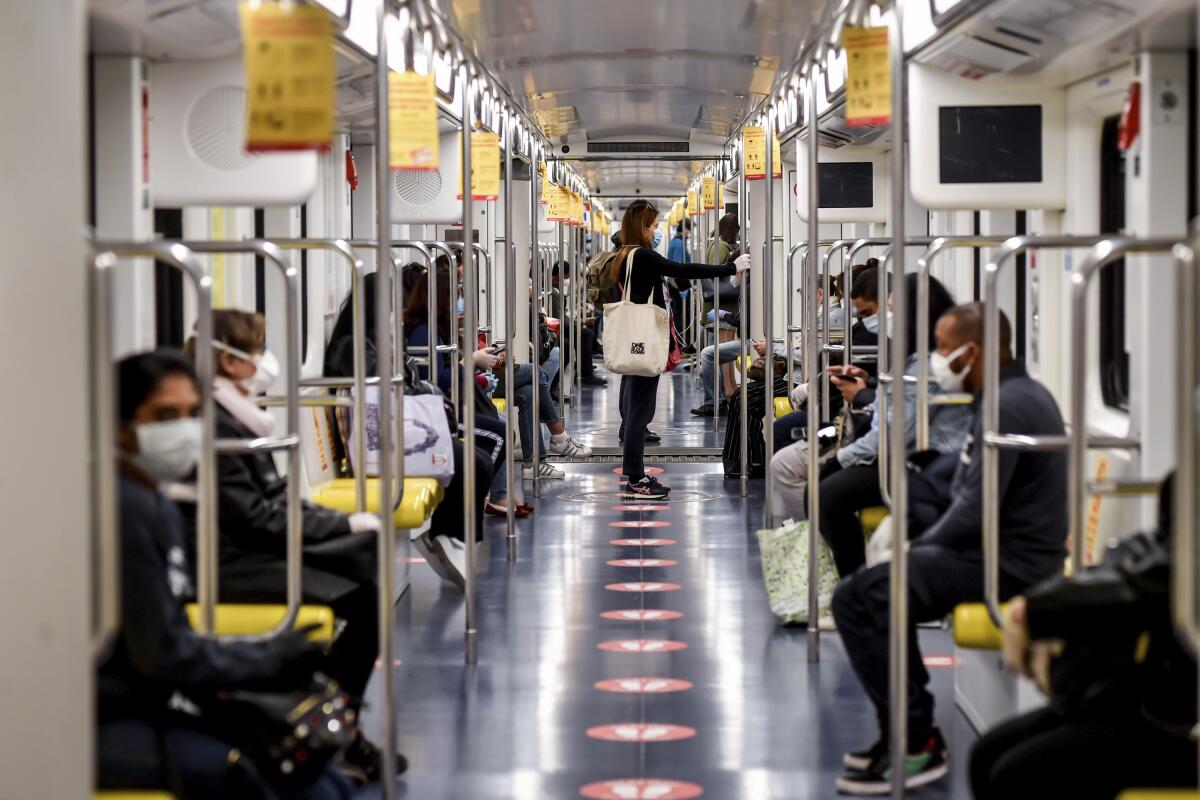
- Share via
ROME — Millions of people were allowed to return to work Monday as Italy started to ease Europe’s longest coronavirus lockdown. Some of the battered country’s neighbors also began gingerly lifting restrictions imposed to help halt the spread of COVID-19.
Italy was the first European nation to be hit by the outbreak and has one of the world’s highest COVID-19 death tolls. On Monday, 4.4 million Italians were able to return to work after a two-month shutdown. Traffic in downtown Rome picked up, construction sites and manufacturing operations resumed, and flower vendors returned to the Campo dei Fiori market for the first time since March 11.
“It’s something that brings happiness and joy, and people have been missing that these days,” vendor Stefano Fulvi said. Like many entrepreneurs, Fulvi had to calculate when it was worth returning to work, given the limited demand with clients stuck at home. He doesn’t expect to break even anytime soon, “but you have to take the risk at some point.”
As infection rates have fallen in large parts of Europe, tentative efforts to restart public life are gathering pace.
Gradual easing of coronavirus restrictions brings hopes, fears
But Europeans’ newfound freedoms are limited as officials remain wary of setting off a second wave of infections.
In Italy, mourners were able to attend funerals — but services were limited to 15 people and there was still no word on when Masses would resume. Restaurants scrubbed their floors in preparation for takeout service, but sit-down table service is several weeks away.
Southern Italy braced for the return of students and workers who were trapped in the hard-hit north when the lockdown took effect. Some regional governors said they would require anyone arriving home to go into quarantine for two weeks.
“It’s a new page that we must write together, with trust and responsibility,” Italian Prime Minister Giuseppe Conte said in a message to his compatriots.
Italians still have to carry certifications explaining why they are out. The list of acceptable reasons has now been expanded to include visits to family and loved ones, but just who falls into that category is still unclear.
When the government said it would begin relaxing its coronavirus lockdown, Italians reached for their dictionaries.
Belgium allowed some companies to open offices to employees, though remote work is still encouraged. Like Italians, Greeks, Spaniards and many others in Europe, Belgians are being told to wear masks on public transport.
Greece, which gradually began lifting its seven-week lockdown Monday, dropped a requirement for people to send an SMS or carry a self-written permit justifying being outdoors.
Hair salons and some stores such as those selling books and sports goods reopened, albeit with strict hygiene and distancing measures.
Athens hairdresser Konstantina Harisiadi installed plexiglass barriers at reception and at manicure stations. A new sign saying “Silence is security” is meant to discourage chit-chat and limit the potential for virus transmission. On her first day open, all her clients were wearing masks.
Germany’s leadership, history help stave off catastrophe from the coronavirus crisis — so far
Harisiadi was booked through the end of the month. But with her business forced to operate with far fewer clients than usual, making ends meet will be a struggle.
“We’re going to try for the best,” she said, adding she doesn’t want to resort to firing any staff. “As the owner of a small business that has the nature of a family, I’m going to avoid it. And along with my coworkers I’m going to look for solutions to manage.”
But she also lamented the way the atmosphere will inevitably change.
“Things are different. There’s no spontaneity — we can’t greet each other, speak, laugh. We’re entering a new era,” she said.
People in hard-hit Spain ventured out for the first time for haircuts or food takeouts, but many small shops were still closed as owners worked on meeting strict health and hygiene guidelines. Neighboring Portugal also eased its confinement measures and allowed small stores to open.
Spain’s children have been released from six weeks of home confinement as the country reins in its coronavirus outbreak.
On Europe’s western edge, Iceland also reopened hair salons — along with high schools, dentists and other businesses — after six weeks in which the country has tamed its virus outbreak.
Russia, however, reported a steady rise in the number of infections, with more than 10,000 new cases reported Monday. The increase has fueled concerns that the nation’s hospitals could be overwhelmed. Authorities say that broader testing has contributed to a surge in the figures.
Russia’s economy has been partially shut down since late March, and lockdown measures have been extended through May 11.
More to Read
Sign up for Essential California
The most important California stories and recommendations in your inbox every morning.
You may occasionally receive promotional content from the Los Angeles Times.
